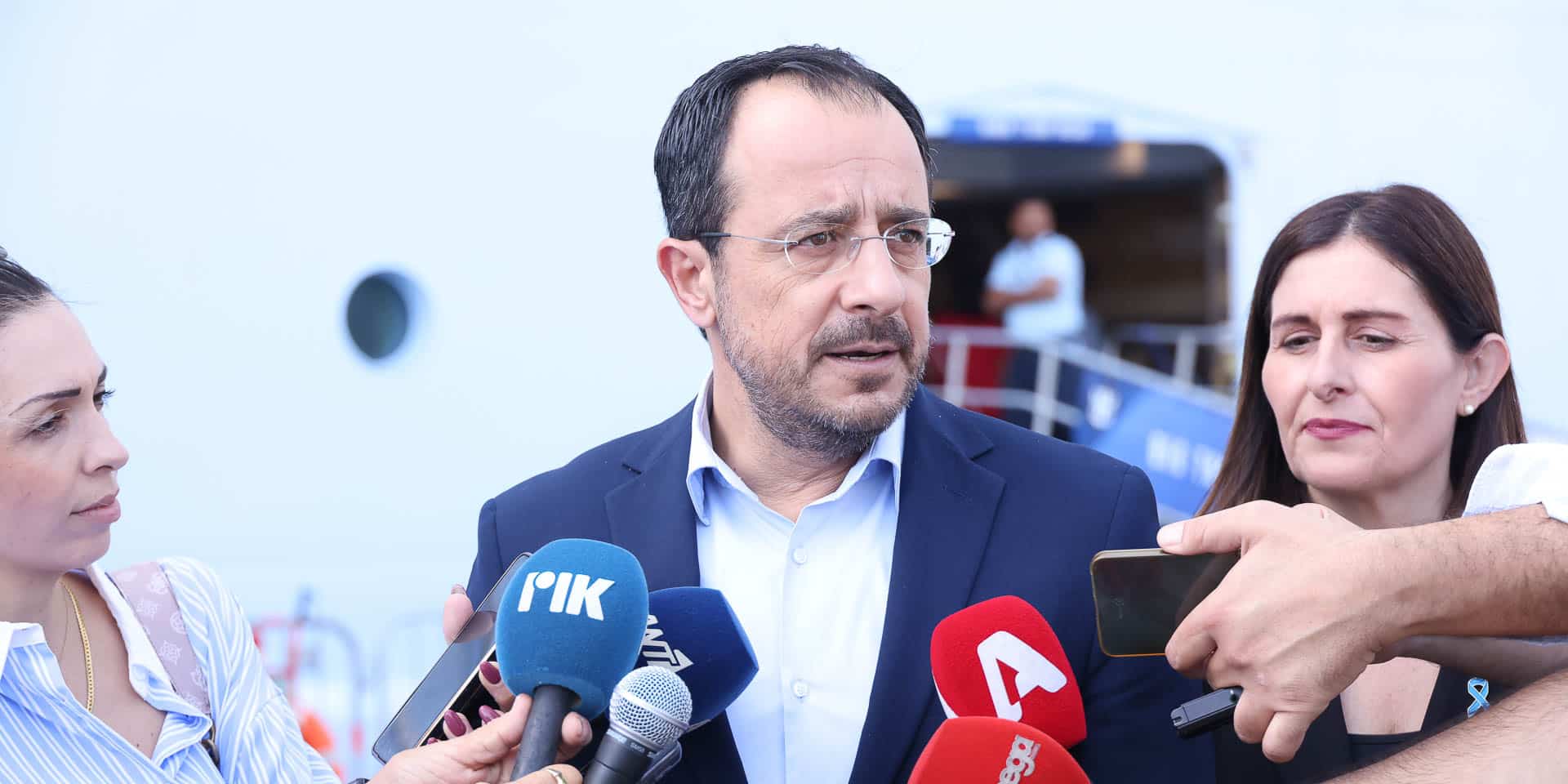President Nikos Christodoulides spoke at length with Israel’s Prime Minister Benjamin Netanyahu and details are being hammered out so that Cyprus can be ready “when the time comes” to offer aid, Deputy Government Spokesman Yiannis Antoniou said on Wednesday.
Speaking on CyBC’s morning radio, Antoniou said the “key” to unlocking humanitarian aid via a sea corridor from Cyprus rested with Israel.
“This will be a big operation and one which needs to be coordinated in advance with international aid agencies,” Antoniou said, adding, “We need to be prepared as soon as the green light is given by Israel.”
Asked about the exact point-to-point coordinates of the shipping route, Antoniou detailed that what was being examined was a route from Piraeus port in Athens, to Crete, to Cyprus, and from there onwards, possibly to Egypt.
“It will be important to ensure the safe passage of ships during the sea route itself and a safe harbour, as well as ensure that the supplies reach their intended destination and are distributed correctly,” Antoniou said.
Asked about the seemingly remote prospects for a ceasefire, following recent Israeli statements to the United Nations, Antoniou said that a break in hostilities was certainly a requirement for aid to be provided – all that could be done meanwhile, was to have the best possible preparation in place, the spokesman said.
Speaking in Tel Aviv earlier in the week, Netanyahu had said that Israel would not agree to a halt in attacks because, he argued, it would strengthen Hamas.
“Just as the United States would not agree to a ceasefire after the bombing of Pearl Harbor or after the terrorist attack of 9/11, Israel will not agree to a cessation of hostilities with Hamas after the horrific attacks of October 7,” Netanyahu said, adding that “calls for a ceasefire are calls for Israel to surrender to Hamas, to surrender to terrorism.”
A diplomatic source speaking to the Cyprus Mail on Tuesday had questioned whether a ceasefire “or a humanitarian pause” of twelve hours would be sufficient to unload essential items, suggesting that “perhaps a day is required.”
However, the magnitude of the humanitarian disaster affecting 2.3 million Palestinian civilians under siege in Gaza, would necessitate at least days or weeks of back-and-forth ferries to the region, Antoniou conceded to the state broadcaster.
The Cypriot proposal for the opening of the humanitarian corridor to Gaza was mentioned in the Times of Israel on Tuesday.
The main objective, the news outlet reported, is the “continuous flow” of a large amount of goods from the port of Limassol to the blockaded enclave, as soon as the cessation of hostilities allows for humanitarian intervention.
According to the publication, which cites a Cypriot source, food, clothing and medicine could be sent either directly to Gaza, or to stations in Egypt and Israel, to appease Israel’s concerns that the aid may include provisions that would be diverted to equip Hamas.
Among the loose ends are the exact coordinates of the shipping route, which humanitarian organisations would be tasked with the distribution within Gaza, and whether the cargo would be carried by commercial or warships.
So far, the initiative has gained support among the Arab states of Egypt, Jordan, Kuwait, Oman, and Bahrain and from several EU states, including France, Spain, the Netherlands, and Ireland.
Christodoulides meanwhile said on Tuesday that Israel was positive, that the humanitarian corridor was at an advanced stage, and that he had also approached US and EU officials, including French President Emmanuel Macron, with whom he was due to have a telephone conversation.
“I informed the heads of state of the European Union about this proposal at the recent European Council meeting. Previously, I had informed the President of Egypt… and the Prime Minister of Israel on the same day,” he said.
He added that Foreign Minister Constantinos Kombos had visited Jordan to discuss the possibility and had subsequently met his Palestinian counterpart, and that further contacts will be made with other countries and international organisations “to see how we can proceed with the implementation of this initiative.”
Diplomatic sources stressed that a humanitarian corridor is essential, particularly as the conflict drags on, and expressed the belief that Cyprus possesses the facilities and the ideal location to serve such a mission.







Click here to change your cookie preferences